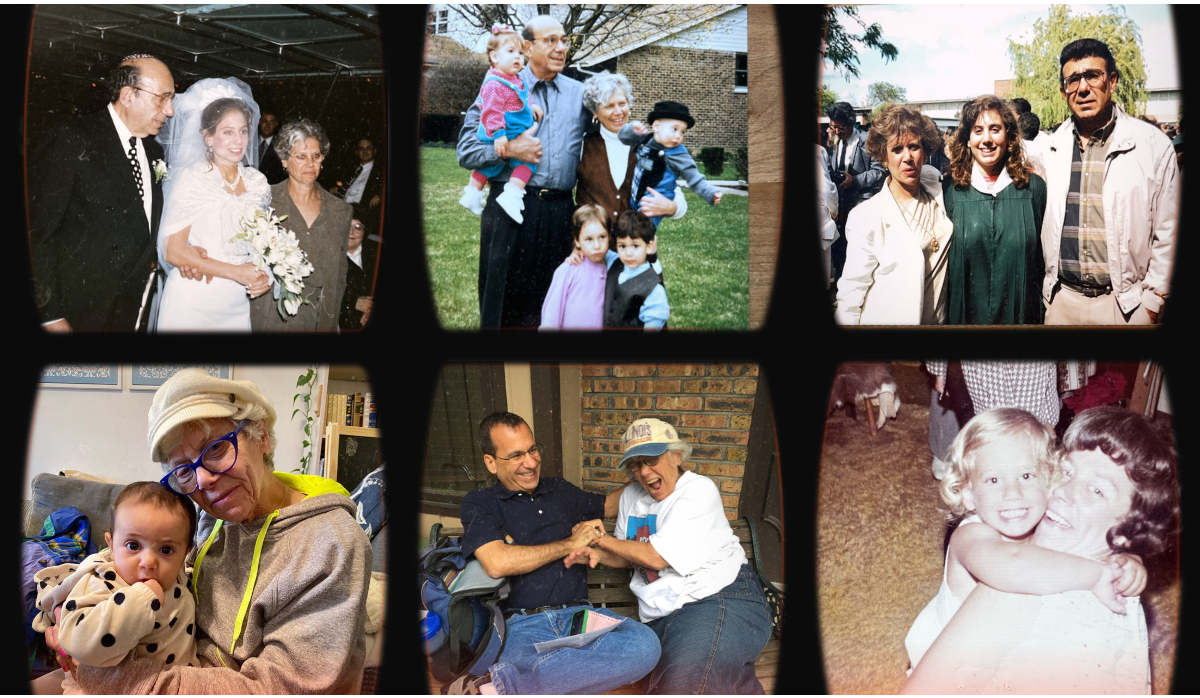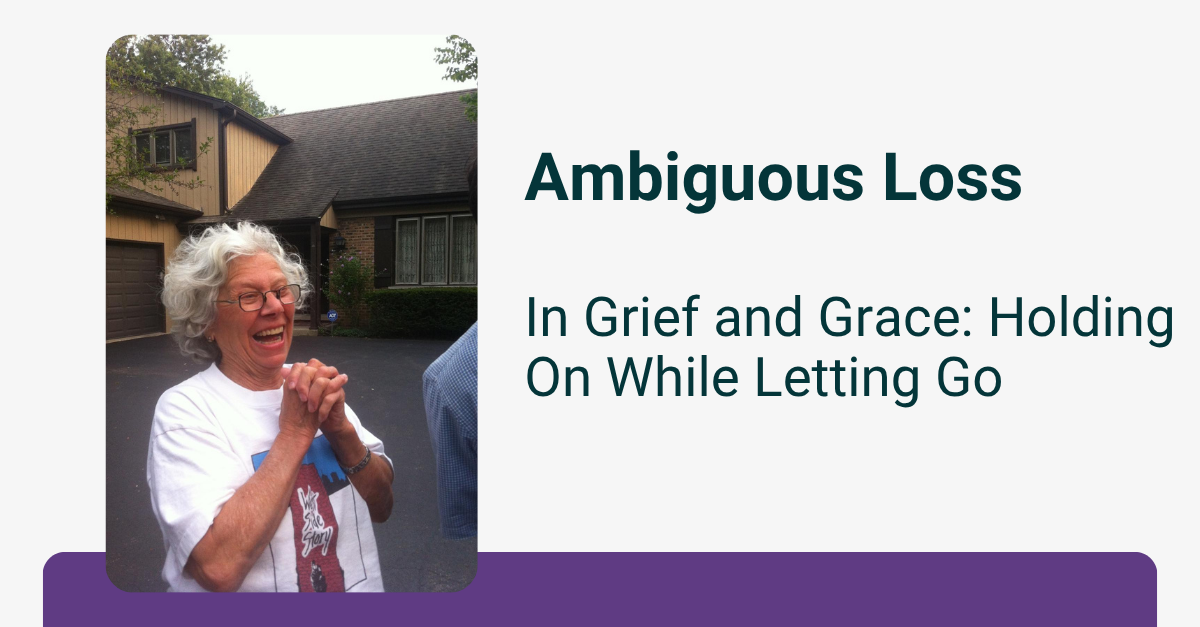Recently, I sat down to sift through some old videos and photo albums—those cherished time capsules of years gone by. At first, it was just nostalgia that drew me in: memories of family gatherings, laughter, and everyday moments frozen in time. But when I saw photos of my mom—her eyes bright, her smile effortless, her presence so vivid—it hit me unexpectedly hard.
She’s still here. I see her often. I hold her hand. I sit beside her. But that woman in the photos—the one who raised me with strength, humor, and grace—feels like someone I’ve already begun to lose.
Dementia has taken parts of her, slowly and quietly. It’s changed her.
What is Ambiguous Loss?
It’s a strange sadness, missing someone who hasn’t left. This experience has a name: ambiguous loss. It’s also referred to as ambiguous grief. Researcher Pauline Boss coined the term to describe a grief that lacks closure, that exists in the gray space between presence and absence. It’s a loss that’s hard to explain to others, even harder to navigate yourself. For dementia caregivers, this ambiguous grief is a constant companion.
With dementia, the grief doesn’t come all at once. It’s not a sudden goodbye. It arrives in waves—small, unexpected realizations that the person you love is changing in ways you can’t control or reverse. Sometimes it’s the forgotten name. Other times, it’s the silence where conversation used to flow. The hardest part is that while the body remains, the essence seems to fade bit by bit. This is the heartbreak of dementia—the slow goodbye.
Looking at old photos, I’m reminded of her quick wit, her unsolicited but always spot-on advice, her warm laugh that used to fill the room. There’s an ache that settles in my chest when I compare those moments to now. The contrast is stark, and yet… It’s not without beauty.
Because even now—even through the fog of memory loss and confusion—she is still here. She’s different, yes. But she’s also deeply human in a way that reveals new layers of love and connection. Sometimes it’s a glance, a smile, a shared moment of stillness that speaks louder than words. I’ve come to understand that love doesn’t disappear when memory fades. It adapts. It softens. It roots itself in the present rather than the past.

Holding on While Letting Go
This is why grieving a parent with dementia can feel so complicated. It’s an emotional landscape filled with contradictions. We miss who they were while loving who they are now. We celebrate the small wins while quietly mourning what used to be. It’s a form of grief that doesn’t follow a timeline or end in closure.
Caregiving under these circumstances isn’t just about logistics or daily routines. It’s emotional labor—an ongoing dance between grief and grace. It’s mourning the loss of the mother I knew while holding space for the woman she is becoming. It’s painful and profound at once.
There’s something quietly heroic about showing up for someone, again and again, even as the relationship you once had slips through your fingers. You find new ways to communicate, to connect. You discover strength you didn’t know you had. You begin to appreciate the small victories: a moment of clarity, a familiar gesture, a smile that lights up her face.
Ambiguous grief in dementia doesn’t offer neat resolutions. There’s no “moving on,” no final chapter. Instead, there’s a continuous process of letting go and holding on at the same time. It’s learning to live in the in-between. It’s learning to love in the now.
So while I deeply miss the vibrant woman my mom used to be, I’ve also grown to love who she is today. Our relationship has changed, but it hasn’t ended. It’s become quieter, more tender, more present.
If you’re walking this road too, know this: your grief is valid. Your love matters. And even in the quietest moments, that love continues to speak. For all families navigating this journey of grief and love, you’re not alone. Give yourself grace to take a break and allow yourself to grieve. When you are able to be there, even if just for a few moments, try to remember that the emotional connection remains until the end.


